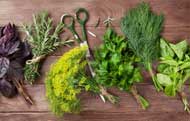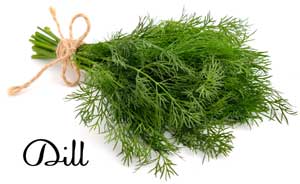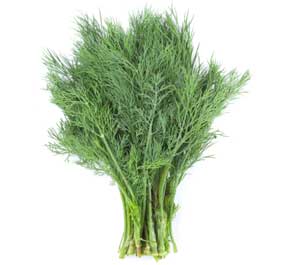




Dill -
is a good source of

1. Dill Facts
2. Tips for Cooking and Storage
3. Types of Dill
4. Dill Nutritional Value
5. Dill Health Benefits
2. Tips for Cooking and Storage
3. Types of Dill
4. Dill Nutritional Value
5. Dill Health Benefits
Dill Facts
History and Origin
Tips for Cooking and Storage
Tips for cooking with Dill
(coming soon)
Common Types of Dill
Common Types of Dill
Dill Nutritional Value
|
Herbs ” Dill ( Nutritional value )
Nutritional Value per 3.1 g – 1 Tablespoon Dill weed, dried |
|||||||||||||||||||||||||||||||||||||||||||||||||||||||||||||||||||||||||||||||||||||||||||||||||||||||||||||||||||||||||
|
|||||||||||||||||||||||||||||||||||||||||||||||||||||||||||||||||||||||||||||||||||||||||||||||||||||||||||||||||||||||||

|
Reference Values are based on a 2,000 Calorie Intake, for Adults and Children 4 or More Years of Age. Your daily values may be higher or lower depending on your calorie needs.
|
|
Percentages are roughly approximated using (RDA) Recommended Dietary Allowances for adults. Source: Nutrient Database – USDA (United States Department of Agriculture)
|
|
Reference Values for Nutrition – FDA U.S. Food and Drug Administration
|
Dill Nutritional Value
Dill Health Benefits
Dill

HEALTH
References
|
Nutrient Database – USDA (United States Department of Agriculture)
|
|
Reference Values for Nutrition – FDA U.S. Food and Drug Administration
|
